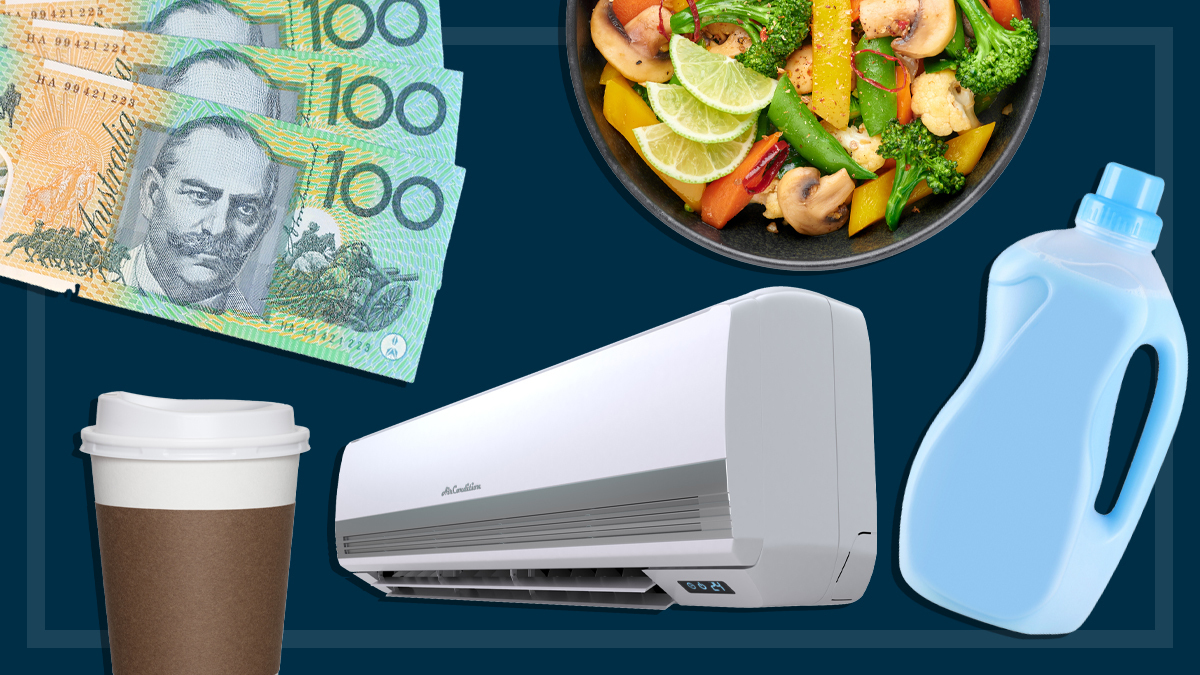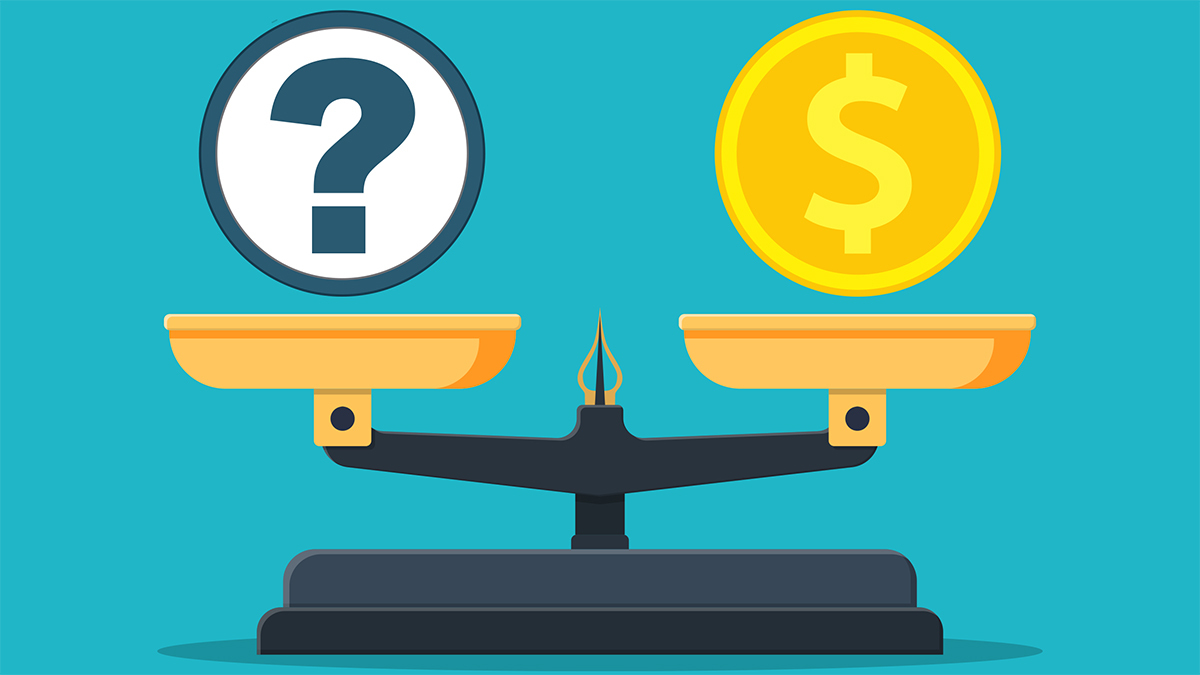Get our independent lab tests, expert reviews and honest advice.
9 expensive habits you need to break if you want to save money

It’s no news to anyone that the cost of living is (still) creeping higher and higher.
A record 96% of surveyed households told us at the end of last year they’d seen their household bills and expenses increase in the previous 12 months.
You’ve likely already made changes to your everyday shopping and spending habits in an effort to relieve your budget. But what else can you do?
From missing out on cheaper deals to wasting money on your home cooling and heating, CHOICE experts share a round-up of the most expensive habits you should break to make real savings.
After all, the beginning of a new year is a great time to ditch those habits that aren’t doing our wallets any favours!
1. Sticking with your current energy supplier
More and more of us are familiar with that sick feeling you get when your electricity and gas bill pops into your inbox. How much is it going to hit you for this quarter?
If you haven’t changed utility providers for 12 months or more, now is a great time to shop around for a better deal.
Plan details are constantly changing, as are offers available for new customers, so a little research could pay off.
Plan details are constantly changing, as are offers available for new customers
Most Australians count electricity bills among their main concerns when it comes to expenses, which is not surprising considering that electricity costs rocketed over the past year.
Start by asking your current provider if there are any discounts or better deals available to you, and then start researching what else is on offer. Find out more about how to shop around for a better energy deal.
2. Sticking with your current insurance provider
In a recent CHOICE survey, almost nine out of ten (87%) home and contents insurance policyholders told us their premiums had gone up last year. Almost a third (28%) told us the increase was “a lot” and many said they were given no reason for it.
Yet the vast majority of respondents (88%) stayed with the same insurer after receiving their renewal notice.
That extra money you’re paying by staying with the same insurer could mean you’re paying substantially more than you need to.
When it comes to insurance, existing customers are often at a disadvantage
CHOICE insurance expert Jodi Bird says that when it comes to home insurance (and car insurance), existing customers are often at a disadvantage. You get saddled with a “loyalty penalty” – higher prices for loyal, long-term customers – while cheaper rates are made available to new customers for the exact same cover.
“As well as checking to see if you can get a cheaper deal elsewhere, you should compare your current premium with what you’d get charged if you came in as a new customer to the same insurer for the same level of cover and exclusions,” he says.
3. Paying for health insurance extras you don’t use
Along with making sure you’re getting the best deal on your hospital cover, now’s the time to review whether you’re getting the most out of your extras insurance, if you have it.
The average extras cover for a single person costs about $865 a year (without the health insurance rebate). That’s a lot of money to spend if you’re not actually using it to its full extent.
It’s a lot of money to spend if you’re not actually using your extras cover to its full extent
You can consider dropping extras insurance all together, shop around for a better deal, or just commit to making the most of your trips to the dentist, physio and optometrist to get value for money.
Also, many people don’t realise that you can hold hospital insurance and extras insurance with different providers. It can take time to compare combined policies with separate hospital and extras policies, but you can often make big savings.
Find out more about whether extras cover is right for you and how to find the best extras policy.
4. Being afraid to haggle
As more and more Aussie shoppers feel the cost-of-living crunch, peak sales periods such as Black Friday and Boxing Day are becoming more enticing for bargain hunters.
But CHOICE in-house shoppers say that even if there aren’t official sales on, you can get serious discounts on large appliances and other household goods simply by, well, asking.
When haggling over the prices of pillows we test, we were able to secure discounts of up to 60%
When we were buying mattresses for our latest review, we were able to negotiate a cheaper price more often than not, in one case knocking almost half off the recommended retail price. And when haggling over the prices of pillows we test, we were able to secure discounts of up to 60%.
Haggling is not a skill that comes naturally to everyone (read our tips on how to haggle), but don’t be shy to ask, “Is that the best price you can do on this?”, and then go from there. Try it with everything from your car insurance to your new bed purchase and monthly subscriptions.
5. Setting and forgetting your home cooling and heating
Every time you turn the air con on to cool down (or to warm up, if it’s reverse-cycle) it’s costing you cash, so it’s important to invest in efficient appliances that best suit your home, and use them cleverly.
A well-insulated home, keeping internal doors closed, and making use of window and floor coverings can also help maintain temperatures and keep cooling and heatings costs down.
CHOICE heating expert Chris Barnes says, “Heating and cooling appliances account for about 40% of energy use in the average Australian home, so if you’re using them inefficiently, it can make a big difference to your energy bill.”
Running costs can vary hugely between models … a heater or air conditioner that costs less upfront might end up costing you more in the long run
There’s another, very important, factor that has a significant effect on your power bills, and that’s the difference between the temperature you set your air conditioner and the temperature outside.
“The running costs and energy used by your air conditioner can vary hugely based on a number of factors,” says Chris.
“Generally, for the best efficiency for cooling, aim to set your unit around 8°C cooler than the outside temperature.”
Aim to set your air con around 8°C cooler than the outside temperature
And if you’re buying a new heater or air conditioner, don’t just go for the cheapest option. Running costs can vary hugely between models, and an appliance that costs less upfront might end up costing you more in the long run.
Check out what our experts say on how to save money on your home heating and cooling costs.
6. Shopping on auto-pilot
Are you an ‘in and out’ type of shopper who rushes through the supermarket grabbing what you need, always sticking to the same staples? It’s a common habit, and it’s costing you at the checkout.
Taking a bit of time doing your groceries to check unit pricing (this helps you compare prices on similar products to see which are cheaper), looking for products on special, and buying seasonally can all help you make significant savings.
Find out how comparing unit pricing can help you save, and how some smart budget-friendly grocery swaps can ease the pressure of food costs.
Ditch brand (and supermarket) loyalty
It isn’t possible for everyone to shop around between different retailers, but if you have the time, ability and resources (and have access to different supermarkets), spreading your groceries between different retailers based on whichever has the cheapest product at the time can mean big savings.
CHOICE Community members who practise multi-store shopping have told us they’ve been able to save 20% to 40% off their weekly groceries by doing this.
Our testing shows that own-brand products often outperform more expensive branded products
And while you may have sworn loyalty to a certain brand over the cheaper supermarket own-brand option, our testing shows that own-brand products often outperform more expensive branded products.
So it might be time to ditch your favourite for a cheaper alternative (or start splitting your shop between supermarkets based on what’s cheaper where).
For example, in our recent toilet paper review, CHOICE experts recommended the Aldi Confidence 3 Ply Extra Soft Toilet Tissue, which scored 76% in our review and costs just 25c per 100 sheets.
Compare this to Kleenex Toilet Tissue Complete Clean, which scored just 49% in our testing, but costs more than double the price at 56c per 100 sheets.
7. Buying takeaway coffee every day
OK, so this is a no brainer you’ve already heard a million times before.
Your takeaway coffee is probably one of the first things you consider dropping when you’re trying to balance your budget, but you have done the maths to find out how much it’s really costing you?
Sorry to burst your caffeinated bubble, but with the price of takeaway coffees skyrocketing in the last couple of years, the annual cost of buying a coffee every day is eye-watering.
Our experts have crunched the numbers and found that if you buy your own manual espresso machine and make your coffee at home instead of buying it at a cafe, a two-person household could save up to $2000 a year.
8. Buying unnecessary laundry products
Fabric softeners and laundry beads, we’re looking at you. Not only are these products expensive, they’re adding unnecessary chemicals and icky artificial scents to your clothing.
Plus, they’re bad for the environment. Just think how much plastic packaging you’d save if you ditched them.
One example is Comfort In-Wash Scented Booster Beads, which costs a whopping $60 per kg! Cutting these expensive, unnecessary products from your laundry routine is a great move for your pocket and the planet.
Most of the energy used in washing goes to heating the wash water
Speaking of laundry routines, it’s cheaper to wash one full load than two half loads, so fill your washing machine before you run it.
And check out our detergent reviews to see if you can switch to one that’s cheaper than your current product but that still performs as well. Remember, you can get a great wash from a third or as little as a quarter of the recommended detergent dose.
Finally, as most of the energy used in washing goes to heating the wash water, switching to a cold wash cycle will save on power bills – especially if you have a thirsty top loader.
9. Paying for streaming services you don’t watch
If everyone in the household has their favourite must-watch shows, you may find yourself paying for multiple streaming services.
But are you watching all of them? Are there any you’re paying for that you’ve forgotten about?
Compare prices of some of the most popular streaming services below, or add up what you could be paying per month. See if you can save money by downgrading or cancelling any you don’t need.
Most services let you cancel and restart at any time if you think you won’t use it for a while and need to save some cash.
And some streaming services such as Disney Plus, Amazon Prime Video, Hayu and Britbox offer discounts if you pay for a full year.
- Netflix: $16.99 per month (standard plan with no ads)
- Stan: $10 per month (basic plan)
- Disney Plus: $13.99 per month or $139.99 per year (standard plan)
- Binge: $18 per month (standard plan with no ads)
- Amazon Prime Video: $9.99 per month or $79 per year
- Apple TV: $12.99 per month
- Kayo Sports: $25 per month (lowest tier)
- Foxtel Now: $25 per month (lowest tier)
- Paramount+: $9.99 per month (lowest tier)
- Britbox: $9.99 each month or $89.99 per year
- Hayu: $6.99 per month, $33.99 for 6 months or $61.99 per year.
We compare streaming services and their features, including how easy it is to search for specific content and discover new shows and movies, in our TV and movie streaming services review.





